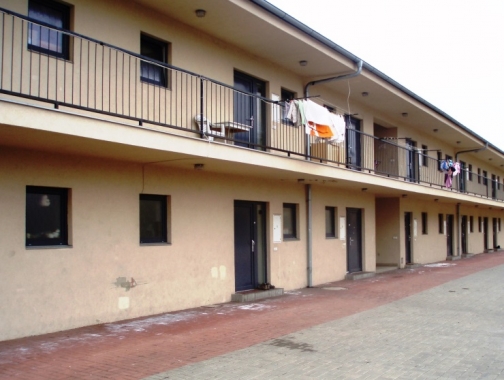International Cooperation on Social Inclusion
Dutch-Czech partnership stimulates the integration of Roma and qualifies for Civil Society Prize
Brussels, 2 October 2014 | Social
The Dutch social housing association, Jutphaas Wonen and the Municipal District Prague 14 (Prague 14) collaborate, aiming to improve the Roma integration, and qualify thus for international prize.
Nieuwegein is a small (around 60.000 inhabitants) city close to Utrecht, in Netherlands. The Roma community of the wider region consists of approximately 400 people living in houses, mainly owned by housing associations, spread over different areas of Nieuwegein. The problem is that it is a socially and culturally isolated community. Or at least it has been so until the Municipality of Nieuwegein, together with local social housing association Jutphaas Wonen and other stakeholders, decided to act.
Established already in 1919 as a private non-profit organisation pursuing social goals, Jutphaas Wonen has always had its main objective to provide adequate and affordable housing for the society’s less privileged on lower and middle incomes. The organisation includes in its self-definition the goal to make a positive contribution to the quality of life in neighbourhoods through safeguarding social cohesion.
Within this framework Jutphaas Wonen, alongside with other local stakeholders, has teamed up with the municipality of Nieuwegein to implement an inclusive strategy towards the integration of Roma families. The main goal was to attain a positive change in the family system, focusing on the children, the parents and the living environment. Positive results include an improvement in perception and acceptance of Roma among non-Roma communities.
Read MoreThree themes have been recognized as of key importance to stimulate the ultimate goal of integration:
- The involvement of residents, so that they fully understand the matter and so that trust and respect may be established. Talking with and not about residents has been crucial.
- Prevention of disputes among neighbourhoods of different social and cultural backgrounds by organising informal encounters, planning clear policies in close collaboration with the local authorities and by empowering Roma through participation and involvement in the decision making process.
- A comprehensive inclusive approach that practically supports families and prepares their members for the standard housing and labour market, creates independency and minimises the risk of failure.
These have been the main lessons learnt within the programme. Prague 14 has studied best practices in the Netherlands in the area of housing, supporting local employment, training and education that were then applied in pilot programs. Jutphaas Wonen has written proposals and recommendations for adjustments for the deployment of methodologies used in the Netherlands with the aim to make these programs more effective, efficient and above all sustainable.
Marella Verhagen, one of the project coordinators, comments on the partnership:
“The collaboration between Jutphaas Wonen and Prague 14 has resulted in a program that, one step at a time, has a real positive impact on people's lives. The program is successful thanks to broad political support and the drive and effort of the staff. It is important to facilitate and support Romas who are willing to invest an incredible amount of time and energy empowering their people.”
The project has been nominated for the Civil Society Prize 2014 that is awarded by the European Economic and Social Committee.
Leave comments